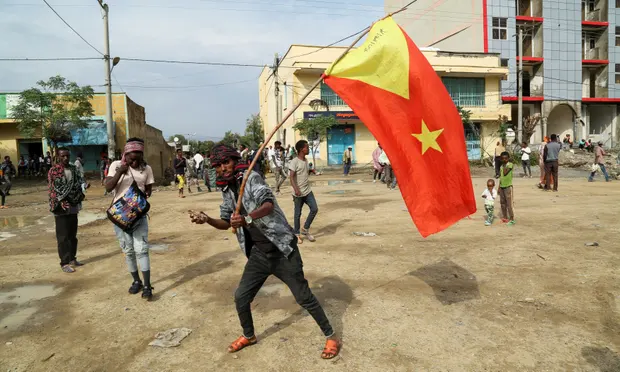A hunger crisis has reportedly claimed the lives of at least 700 individuals in the Tigray region of Northern Ethiopia in recent weeks, following the decision by the United States and the United Nations to halt food aid. The suspension came in response to the discovery of a scheme to siphon off donated wheat meant for vulnerable individuals.
The halt of food aid to Tigray began in March and was extended to encompass the entirety of Ethiopia in June, affecting approximately one-sixth of the country’s population, equating to 20 million people in need.
According to Tigray’s Disaster Risk Management Commission, 728 starvation-related deaths have been documented across three of the region’s seven zones since the food aid cessation in March. The Commission leader, Gebrehiwot Gebregziaher, stated the data was collected by district officials, describing the situation in Tigray as “very difficult”, with many succumbing to food shortage.
Within Tigray’s northwest zone, which houses thousands of people displaced by a two-year-long conflict, 350 hunger deaths have been reported. The cessation of aid led to a significant surge in the number of children admitted to hospitals for malnutrition, with a 196% increase between April 2022 and April 2023, according to a U.N. update published on June 14th.
Researchers at Mekele University, located in the regional capital, have recorded 165 hunger-related deaths in seven camps for internally displaced people since the food aid halt. Most of the deceased are children, elderly individuals and those with underlying health conditions. This information, reported by camp coordinators, directly links the deaths to the cessation of aid.
The recent war left 5.4 million of Tigray’s 6 million inhabitants reliant on food aid. However, the conflict saw humanitarian supplies looted and aid access restricted by both sides. A ceasefire in November had allowed the resumption of aid deliveries to the region.
The U.S. refuses to resume food aid until senior Ethiopian government officials implicated in aid theft are removed from the aid distribution process and stronger checks are implemented.
In spite of allegations that it is primarily responsible for the disappearance of aid in Tigray and other regions, the Ethiopian government is cooperating in a joint investigation with the U.S. and the U.N.’s World Food Program.
Whilst food deliveries remain suspended, the U.S. and the World Food Program continue to operate nutrition programmes for women and children. However, these initiatives have been hindered due to a lack of funding.




